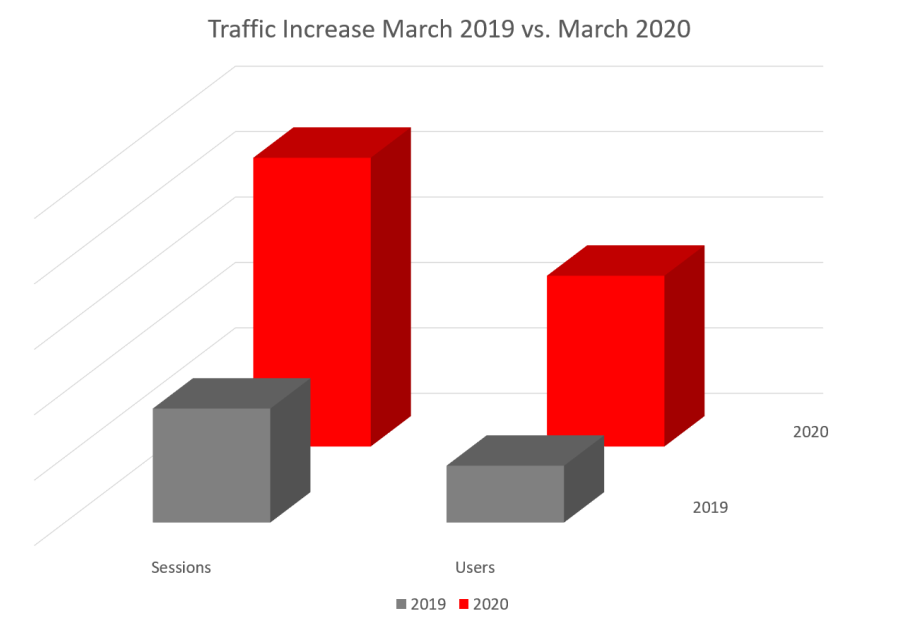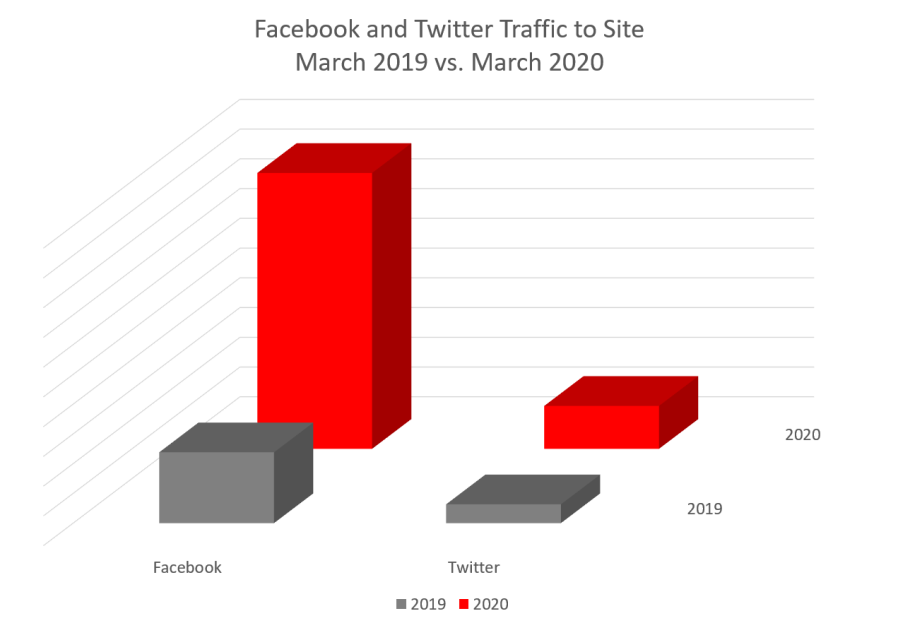If you feel addicted to the news lately, you are not alone. According to a report by Vox Media, the public is reading much more news during the novel coronavirus pandemic than in the past.
Most of the mainstream news outlets in the United States - The Atlantic, Business Insider, The New York Times, the Los Angeles Times, the Wall Street Journal and Wired - according to an article published last week by the Times, have all “doubled or nearly doubled the number of visits” to their sites.
“The number of minutes spent by readers at news sites increased 46% from the same period ending a few days ago last year, and overall visits rose 57%, according to a study of more than a dozen general news websites by comScore, a media measurement company,” the Times shared.
It added that USA Today’s audience shot up 30%, Vox visitors increased by 60% from the first week of March to the second and that Hearst magazine’s website was pulling in 33% more readers week on week.
The Jerusalem Post has seen a similar spike since the start of COVID-19, drawing more readers and from a diverse mix of geographic locations around the world. The Post is showing 153% more visits in March 2020 vs. March 2019 and 200% more users.

Vox utilized the popular content analytics platform Chartbeat to evaluate what readers are consuming. “Coronavirus,” Vox reported, dominates the top spot in two major categories: Number of people simultaneously reading articles about a topic and the amount of time spent reading those articles.
Moreover, while the coronavirus might physically have emptied newsrooms, journalists are working more and harder to cover the pandemic. In the past month, often more than 80% or more of the Post’s news budget is dedicated to bringing you information about this life-altering story.
Social networks are also experiencing a surge, in part because people are trapped inside their homes, separated from their extended families, friends and colleagues.
Nieman Journalism Lab reported that more than half the articles being consumed on Facebook in the United States are related to the novel virus. It also reviewed an article by the Times that documented how the usage of Facebook features like messaging and video calls have spiked to record levels in recent weeks and “powered a surge in traffic for publishers and virus-related news.”
These networks are also playing a key role in bringing traffic to news websites.
The Post alone has seen a 290% increase in traffic to its website via Facebook - when comparing last March to this month - as well as a 130% in Twitter traffic.

While this surge in traffic has not fully restored the challenged news industry - many companies like the Post had to cancel conferences and other events that generate revenue - it is hopeful that consumers will renew their appreciation of the industry and the people who are on the frontlines bringing readers the news needed during this challenging time.
